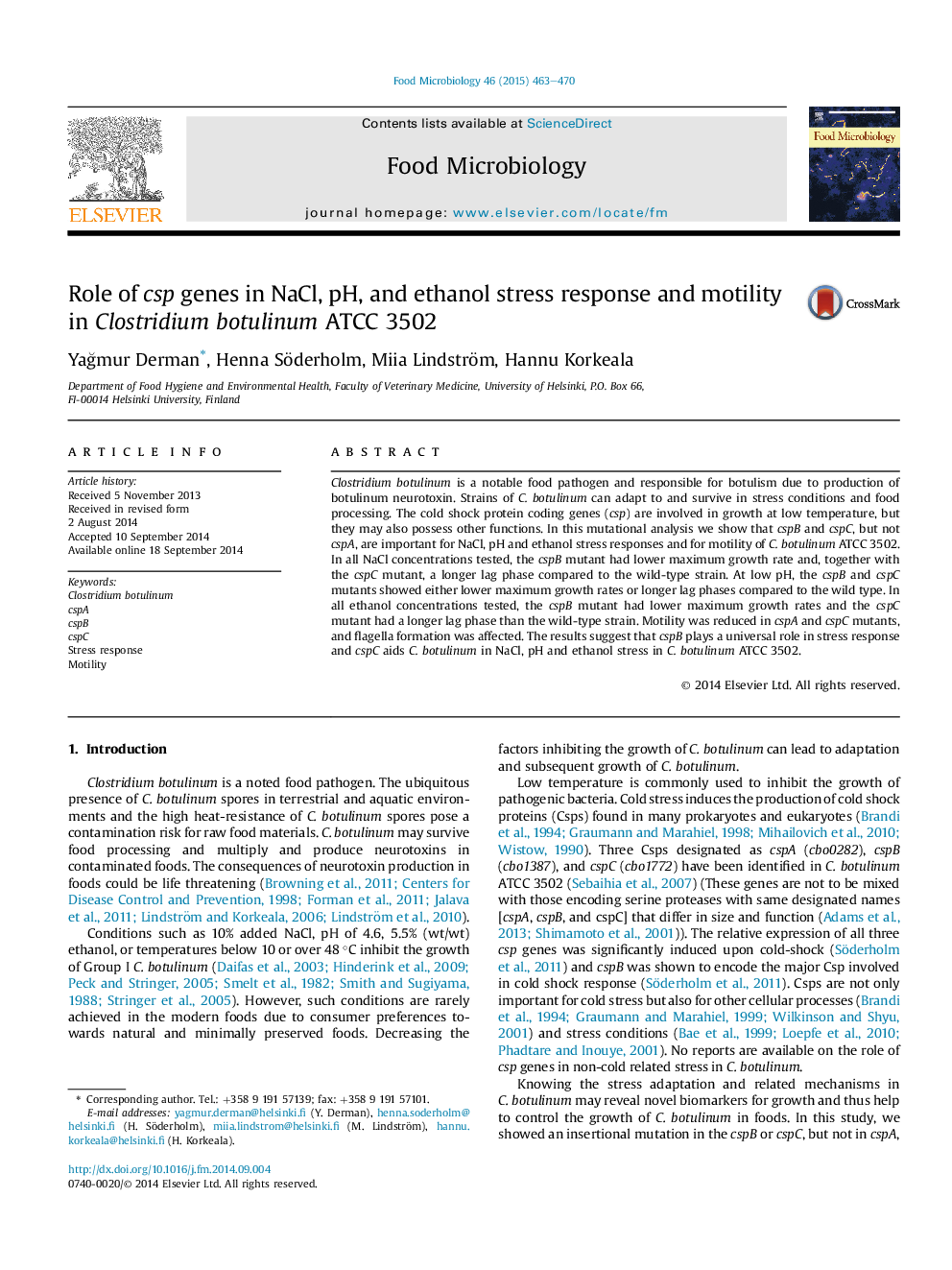| Article ID | Journal | Published Year | Pages | File Type |
|---|---|---|---|---|
| 6288585 | Food Microbiology | 2015 | 8 Pages |
Abstract
Clostridium botulinum is a notable food pathogen and responsible for botulism due to production of botulinum neurotoxin. Strains of C. botulinum can adapt to and survive in stress conditions and food processing. The cold shock protein coding genes (csp) are involved in growth at low temperature, but they may also possess other functions. In this mutational analysis we show that cspB and cspC, but not cspA, are important for NaCl, pH and ethanol stress responses and for motility of C. botulinum ATCC 3502. In all NaCl concentrations tested, the cspB mutant had lower maximum growth rate and, together with the cspC mutant, a longer lag phase compared to the wild-type strain. At low pH, the cspB and cspC mutants showed either lower maximum growth rates or longer lag phases compared to the wild type. In all ethanol concentrations tested, the cspB mutant had lower maximum growth rates and the cspC mutant had a longer lag phase than the wild-type strain. Motility was reduced in cspA and cspC mutants, and flagella formation was affected. The results suggest that cspB plays a universal role in stress response and cspC aids C. botulinum in NaCl, pH and ethanol stress in C. botulinum ATCC 3502.
Related Topics
Life Sciences
Agricultural and Biological Sciences
Food Science
Authors
YaÄmur Derman, Henna Söderholm, Miia Lindström, Hannu Korkeala,
